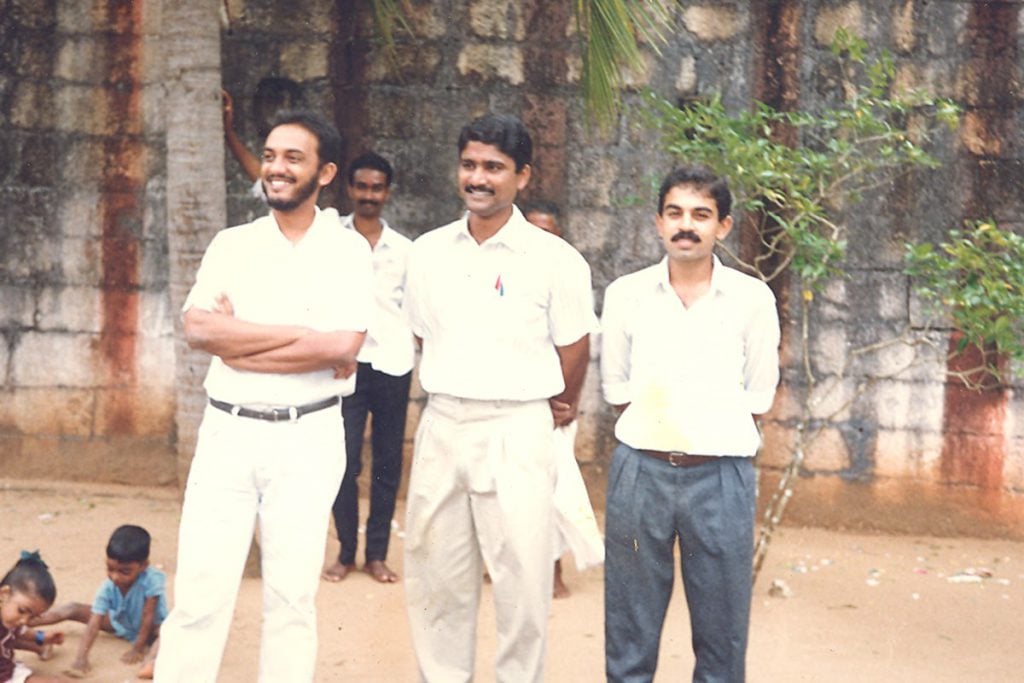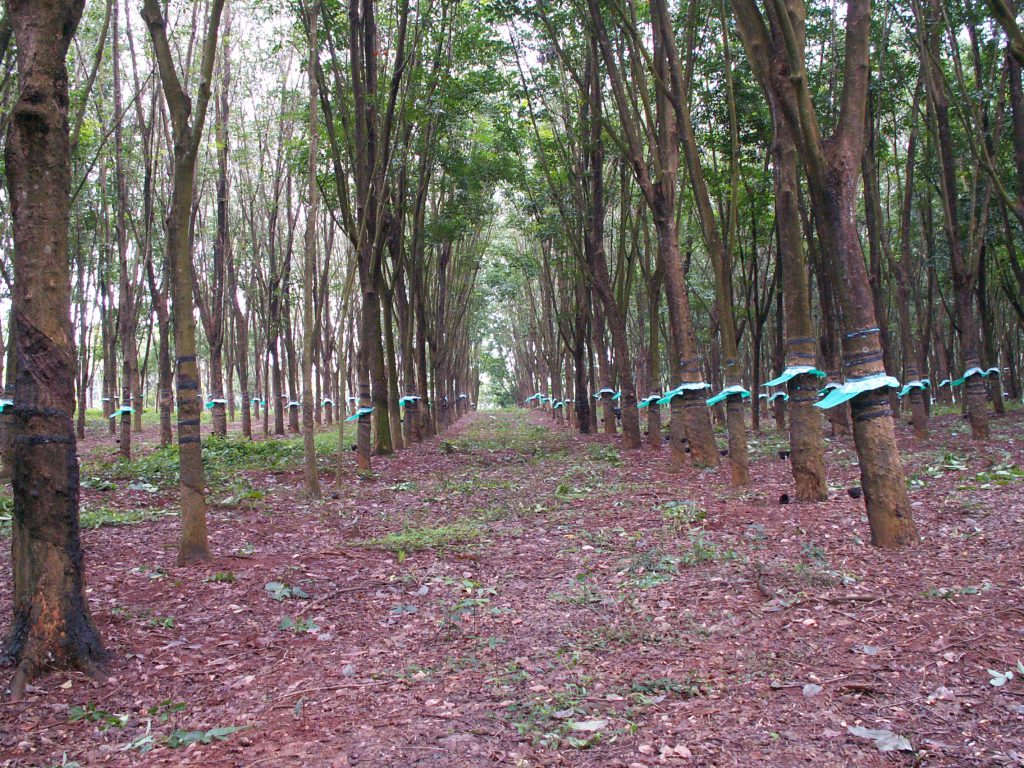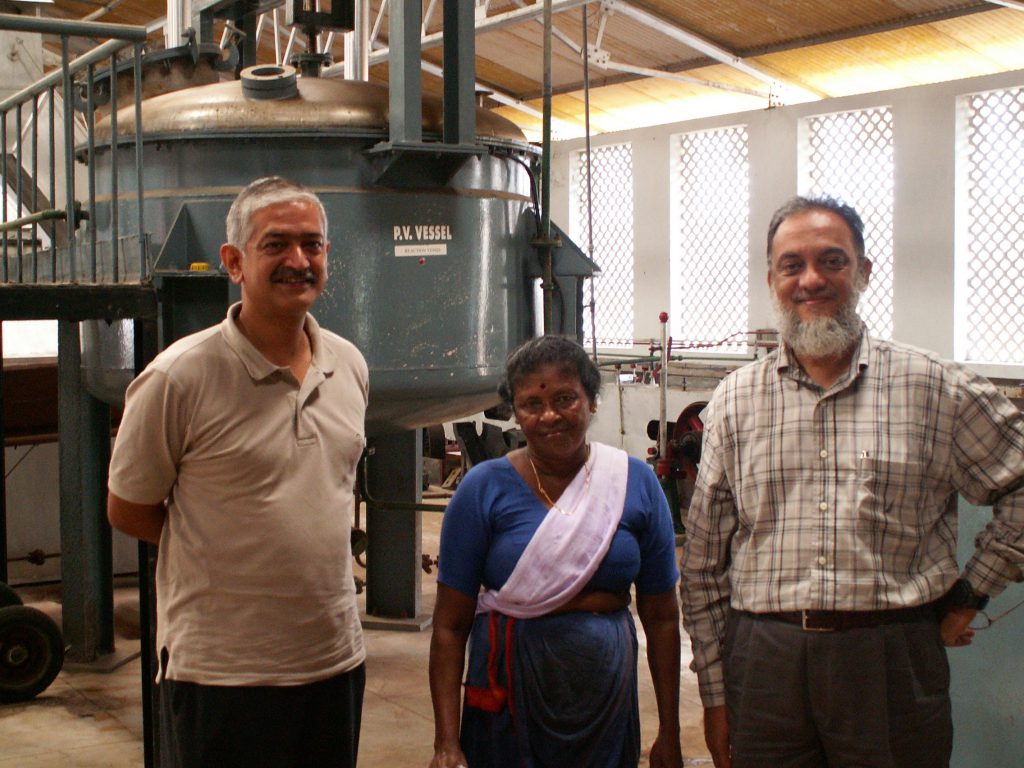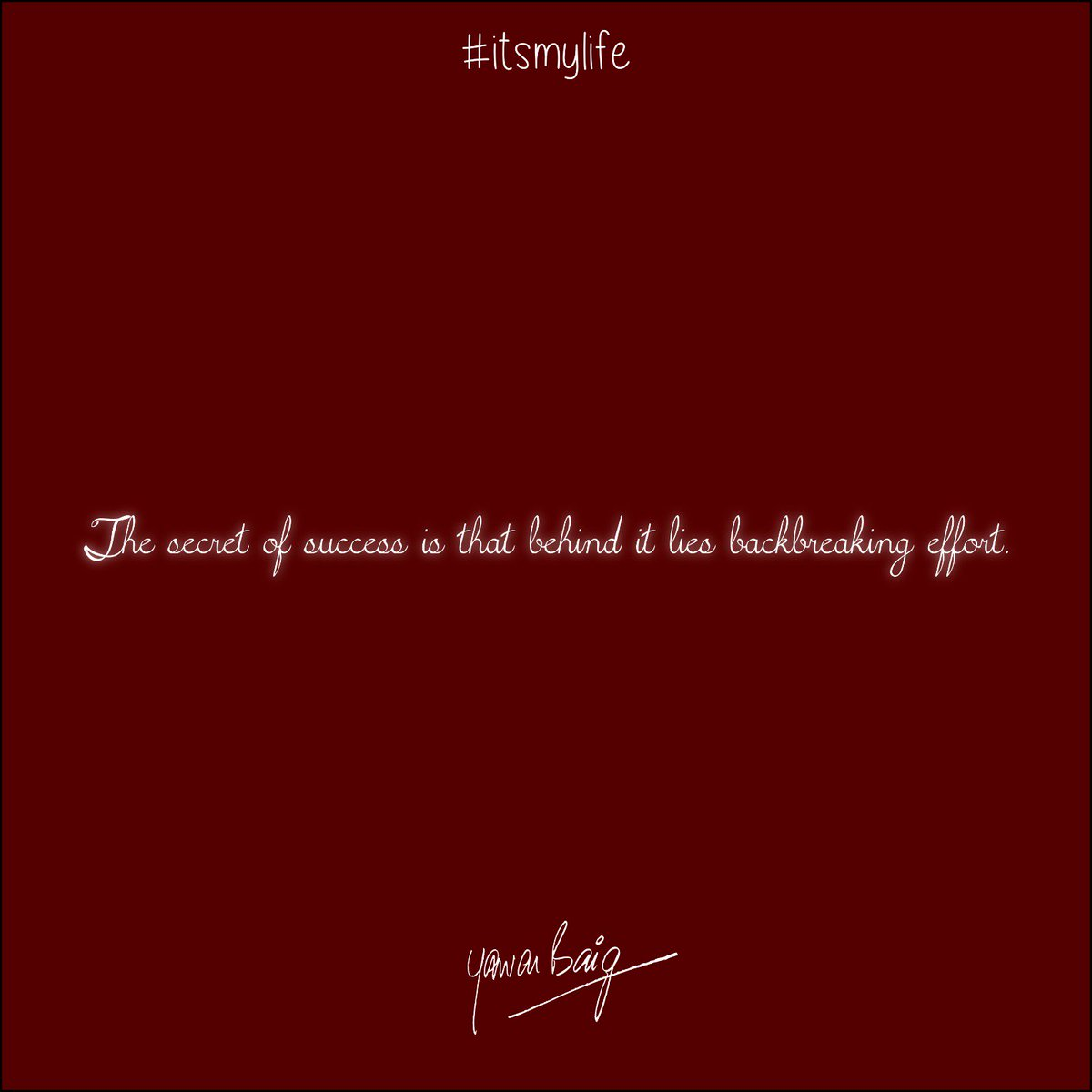
How to beat Goliath
Because size doesn’t matter
I have formulated 6 rules which I call David’s rules. These are for anyone facing the big one ...

I am going to talk about the Ambadi story in some detail because there are a lot of lessons to be learnt in leadership. The first one is that leadership is never given. It must be taken. The only one who defines the scope of your authority is yourself. You have as much as you want to take. But it must be done early in the game or the advantage of initiative will be lost and unconsciously boundaries will get set. If you set the boundaries while you have the window to do so, then you come out ahead in the game. Otherwise, others, your boss, subordinates, circumstances, resources, set the boundaries that you will get locked into. The fact is that if you take the risk of assuming authority and act with confidence, you get the mandate to operate within those boundaries. If you want to play safe and ask, then the boundary is set by others. With authority comes the responsibility for results and accountability to the stake holders, but then that is the challenge. Anyone who is afraid of being accountable is afraid of taking charge and is not leadership material.
In my book, Hiring Winners, I have made this point; that the signs of leadership must be found in a person’s past. And the most reliable of those signs is their willingness to stand and be counted. To say in effect, “Here I am. You can count on me. I have a plan. I have determination. I am willing to learn and I will deliver what I have promised. And I am willing to take responsibility.” If you can see a person doing this over and over again in their lives, then you are looking at a leader. Remember that it is not an issue of size or scope. You don’t necessarily have to be a corporate president or a national leader or a politician or clergyman to do this. Anyone can do it. The vegetable seller on the streets in India; a woman who is a single parent and supports her family, buys some vegetables every day from the wholesale market, sells them during the day, has some money to take home in the evening and saves some to buy more the next day, is a leader. The women of Bangladesh who supported Muhammad Yunus, to create and grow the Grameen Bank were all leaders. All poor village and urban women. All of them willing to take charge of their own lives, stop blaming the world for their situation and willing to do what it takes to change it to the way they want it to be. Leadership is not a size thing or a title thing. It is an attitude thing. This is why I want to talk about the Ambadi experience in detail.
When you are working in a high conflict environment a particularly important strategy is to proactively reduce the issues on which conflict may happen. The fewer the conflicting issues, the easier your role in resolving them. Remember, the key is to do this proactively without being asked. The more issues you resolve unilaterally, the more brownie points you earn in the public eye and the more emotional support you will have when you actually deal with the ones in which you have to necessarily come into conflict with others. Another powerful strategy is to create as many interaction opportunities that are on issues other than the conflict issues as possible. That gives opportunity for both parties to meet and interact in tension free spaces and gives them freedom to exchange views, ideas and to see other facets of each other’s personalities than what they can see across the negotiating table.
A third strategy is to try to do what you can to unconsciously enlist the aid of the family and society of the other party and let them see a side of you that is positive and which they can appreciate. This is important for the time when you necessarily must get into the conflict issues, as a result of which the overall level of trust and goodwill is strained. In such a situation, any positive history that you have created comes to your aid and allows people to see you with some amount of balance. Otherwise, the chances are that the forces against you become too strong and people are not able to see your positive aspects.
I decided on a 3 – pronged approach to tackle the Ambadi situation.
With these three objectives in mind I surveyed all the worker housing and unilaterally got all the repair and maintenance work done as quickly as I could. There were a lot of things that needed to be done and which had been delayed for various reasons. I simply sanctioned them all and in a short while our worker colonies were freshly painted and repaired, clean and neat. The families of workers were more than delighted at the change and I started seeing a lot of smiles whenever I visited the colonies as the work was going on. This work meant that local people were employed, and I made sure that I visited every site, every day.

People in Kerala/Kanyakumari play a lot of volleyball, so I made volley ball courts in the worker colonies. This had a dual effect of taking the young men out of their crib sessions at the union office as well as an outlet for their energy and a time for fun. My Assistant Manager, Roshan Appaiah had the bright idea of organizing matches between the colonies and then a match between staff and worker teams. All became instant successes and we spent many enjoyable evenings playing or watching matches. These matches also created a whole new scope of interaction at a social level which had been unheard of until then. Managers and workers did not interact socially. Period. We changed that. Everyone reacts positively to being treated with dignity. So also, in this case. The subjects of conversations changed. Their tone changed. Sport is a good way also of release of both energy and aggression and I could see that happening with more laughing, joking, informality and the starting of friendships.
Indians are hospitable creatures by nature, so when I would go to watch a match, the ladies of the colony would produce some tea and snacks for us all. I reciprocated by making sure that I spoke to the children. My knowledge of Tamil and Malayalam proved to be a big asset once again. Communication is key. Especially in stressful situations. And if you communicate not only readily but in the language of the people especially when you are not from their area or group, they appreciate this very much. So also, in this case. I would carry sweets in my pocket for the little ones, which they loved. Parents like people who their children love, so I was building goodwill all along. While talking to the children and their parents, I would always ask about their schooling.
On one occasion, I learnt that one of the boys had done well in his exams but was not able to go to college as his father could not pay for his higher education. That gave me the idea to start a scheme where we would sponsor the higher education of children of workers who did well in school and then give them jobs in other group companies when they finish their college. What helped us was that the AMM Arunachalam Trust runs schools and colleges and ITI’s (Industrial Training Institute) and they were more than willing to take these children. This scheme also became an instant success.
There was a man who’d had an accident before I joined the estate. His name was Damodaran Pillai. He had lost a leg. I went to visit him at home. Kanyakumari is a hot and humid place. In that heat and humidity, I found that the man was lying on this bed, bathed in sweat, because there was no fan. The house had electricity, but they did not have the money to buy a fan. I sent my driver to buy a fan while I sat with him and left for home only after the fan had been installed. All these things had a magical effect on the image of the ‘Ambadi Manager’. The point I want to make is that when you do something sincerely, it has many positive benefits.
People are naturally house-proud and good news travels. As people from the town or other estates came to visit their friends in the Ambadi colonies and saw the nice houses and the volley ball courts, the occupants had no alternative but to speak well of the management which made all this possible. During this time, the union tried to ask for meetings with me. They tried their old method of calling the house at 5 a.m. I told my butler, Perumal, to say to anyone calling from the Union office that I would be in the office from 10 a.m. to 12 p.m. and would be happy to receive calls or people.
At first the Union resisted on the grounds that it had been their practice for decades to call the manager at home and to have him come to them for meetings. I simply ignored all these complaints and said that times had changed and that I was available to them officially in my office by appointment. My home was my private space and I did not meet anyone there on official work. I told the union General Secretary that he was most welcome to come home for a cup of tea but then we would not talk any business. One day I even took him home for a cup of tea, which he reluctantly agreed to do, his curiosity about my bungalow having got the better of his caution about being seen as ‘friendly’ with the manager.

Then I moved onto tackling another major issue with the Union, which was that of CUT (Controlled Upward Tapping). The rubber tree begins to bear – meaning that tapping for sap – starts at seven years of age. At this time, trees are tapped by making a downward cut in the bark at an angle of 45 degrees, creating what is called a Tapping Panel. Each cut bleeds sap which the thickness of bark at the bottom of the panel, directs into a cup which is hung at the end of the panel. Usually this is made from a scooped-out coconut shell. This method of tapping continues for seven years on one half of the circumference of the trunk. Then they start on the other side of the trunk for another seven years. Once this was over and when effectively all the trunk space had been tapped, the tree would be tapped anywhere the tapper could reach in what used to be called Slaughter Tapping to extract as much sap as possible, effectively killing the tree. A couple of years before I joined, the Rubber Research Institute launched CUT, a new method of tapping from year fourteen onward to maximize output. In this method the tree wouldn’t be tapped haphazardly but would be tapped on the main trunk and some main branches but in an upward direction, creating proper panels. This ensured that not only would the tree yield well but the yield-span of the tree would be prolonged as well. Naturally, this method was greatly beneficial for the plantation as it meant that the tree would continue to produce for a longer time thereby giving a higher return on investment and replanting could be done later.
Workers would also earn good wages as CUT yields were better than conventional tapping and workers were paid incentives on yields over a certain amount. The problem was that the angle of tapping was such that until your muscles got used to the new movement, there would be strain on the shoulder and upper arm muscles, causing quite a bit of pain and discomfort. Thus, the resistance to this tapping method. My predecessor tried his best to persuade the workers to give the method a try which they did and then refused to continue. They were happy to continue the old method of slaughter tapping but refused to do CUT.
I called a meeting and listened to them and their woes. I then went to the CUT field the next day and asked one of them to show me what he was doing and did it myself. It was painful and I admitted readily that it was. We then returned to the office. I told them to give me a couple of days and said that I would come up with a proposal for them to look at. They were taken aback by my willingness to understand their perspective, as they were not used to being treated like equals. They understood fighting and confrontation, not collaboration, disagreement on principles, and the willingness to dialogue. They were at a loss in dealing with me as they had never encountered anyone who was unmovable on matters of principle, but at the same time treated them with respect. I never allowed disagreements to become personal and in a society where there is generally no differentiation between disagreeing and being disagreeable, they didn’t know how to deal with someone who didn’t agree with them but still smiled and offered them a cup of tea when they came with the intention of fighting. I did not mind this confusion in their minds at all, as some mystery is always good for influence.
After two days, I was ready with my proposal. I sent for the Works Committee and some of the other opinion leaders among the tappers and told them that I wanted them to go on a tour of other estates belonging to the AVT Group of Companies which practiced CUT; effectively an all-expenses paid holiday over the weekend. They were delighted; who would refuse a free holiday anyway? I told them that I wanted them to see how CUT was being done in Kerala, speak to the workers who were doing it, speak to their union leaders and then when they returned, I said that we would decide what to do. Kerala is the home of the Communist Party sponsored CITU Union which was also our major union. So, the Works Committee people liked the idea of getting the opinion of ‘one of their own’, so to speak. I told them that I had no intention of fooling them. If CUT was in fact not beneficial for them, then it would not be feasible to do it and I had no intention of forcing it on anyone. But if it was indeed beneficial then why should they lose out on the benefit? So, the best thing was for them to go and speak to people who were doing it and decide for themselves. By now they trusted me enough to listen. That was a good beginning.
I requested the managers of the estates that my worker delegates were to visit to ensure that they were treated hospitably and were given a CUT knife each as a gift when they left. I requested that they be allowed to speak to their own workers and union leaders and discuss the CUT tapping and all its benefits in detail. Nothing is more convincing that speaking to one of your own. The workers in those estates told them what they were earning thanks to CUT and that the pain in the arms was nothing to bother about. It would disappear in a week. But the earning would continue for years, until the CUT panels had been exhausted. The result was that after they returned, they became the catalysts to convince others and the CUT issue simply disappeared without any further effort from us to convince anyone. At the end of the first month when the tappers were paid their incentives for latex, the CUT tappers got the highest incentives as their tasks yielded the most. All remnants of opposition to CUT promptly disappeared.
My next step in the communications strategy was to try to build my own equation with the Works Committee on the estate. For this I called a meeting of the Works Committee. I asked for chairs to be placed in my office for all of them and when they had come in and were seated, looking extremely uncomfortable at this ‘new’ system, I asked for tea and biscuits. I still remember the incredulous looks on the faces of the Works Committee members.
To understand why, let me take a couple of steps back and explain to you what the plantation society was like. The plantations were and continue to be a very feudal and hierarchical place. The tradition of the British managers and their ways embraced wholeheartedly by their Indian successors ensured that there was almost no direct social contact between managers and workers. Or even managers and staff. Manager’s offices were sacrosanct places which workers were not even allowed to enter, much less sit in. There was also a big influence of the Hindu caste system where the workers, the majority of whom were Dalit, were always shown their ‘place’ and treated with deliberate and clear disrespect. It is amazing that for more than a century the Indian tea estate worker took this treatment without complaint.
In many estates to this day, there is a small window in the side wall of the manager’s office through which the manager speaks to the worker. On the rare occasion where the worker came with a union leader or with one of the Works Committee members, he would be allowed into the office but would stand and talk to the manager even though there would usually be vacant chairs before the manager’s desk. When the manager met a worker or supervisor in the field, the latter was expected to step off the road and stand in the rainwater drain while the manager spoke to him. He would be expected to take off his head cover if he had been wearing one. If it was raining, he was expected to fold his umbrella and stand in the rain and get wet as long as the manager continued to talk. I knew some managers who took pleasure in this and parked their car and spoke to the soaking worker through a slit in their window until their miserable egos were satisfied.
Of course all such customs are completely against my values and so I put a stop to each and every one of them in every place where I had authority. In the Anamallais where I’d spent most of my planting career before I came to Ambadi, people knew me and may ways. And my reputation, like all reputations, traveled ahead of me. So, I always entered each estate with a lot of goodwill. People like to be treated with respect and appreciate those who treat them that way. So also, in my case.
Ambadi was a little too far and removed from Anamallais and so people did not know about me and my ‘strange’ preoccupation with treating human beings without discrimination. So, that day, when they were asked to sit and then tea and biscuits were served the Works Committee reacted with what I can only call ‘shocked disbelief’. This was to the extent that the only woman member, a very powerful lady called Rudrayani, refused to have the tea. She made some excuse and wouldn’t drink the tea.

At that time I did not think anything of it. But almost 2 years later, when I had built a good relationship with all of them and they had gotten used to my ways of dealing with people, she said to me one day, “Saar, remember the first meeting you called?”
‘Yes, I remember. You did not have tea when it was served.”
“Do you want to know why?”
“Yes.”
“Because I thought you had drugged it so that we would be under your influence.”
“Now I know what happened when that coconut landed on your head,” I laughed.
Rudrayani had the distinction of being the only person I know who had the opportunity of having a coconut fall on her head from one of the Java Giant trees and lived to tell the tale. There is a belief that coconuts never fall on the heads of people. Someone forgot to tell the tree this and so in the case of Rudy (as we called her) she slept under a tree and woke up when a coconut landed on her head. I used to joke with her that this was proof that she had a head of solid bone. She took this in good humor though she was one of the most militant women leaders that I have ever seen. Once she realized that I would never fool them, she became a valuable asset and supporter. But on occasion we crossed swords and those incidents were memorable as well. Rudy never gave up easily or willingly.
To come back to our story, the suspicion between managers and worker’s representatives was so marked that almost anything the management did was viewed cynically and with extremely low credibility. One of my early learnings in influencing is that if you do whatever you do with sincerity and passion and you do it consistently without any change irrespective of how it is received initially, over time your credibility builds and people start to appreciate the goodness. Sincerity and consistency are essential. So also, it happened in our case. My team and I were able to establish that we would do whatever we could to go out of our way to help people. We would always treat people with respect. We would never lie to them or cheat them or take advantage of them. But we would also never back off from any situation, however tough, where we felt that our rights were not being fulfilled. Since we did this consistently our credibility grew.
I decided that the time was now right to initiate the third part of my strategy, to establish our control on the affairs of the company, which the union had become used to controlling.
Please log in to leave a comment
Loading comments...

I have formulated 6 rules which I call David’s rules. These are for anyone facing the big one ...

One of my friends who comes from ...
I have said this a million times, if I have said it once – the three crimes committed on society with society’s blessing are: Commerci...